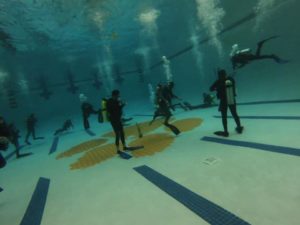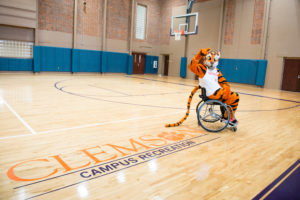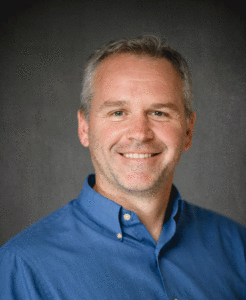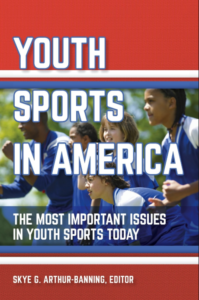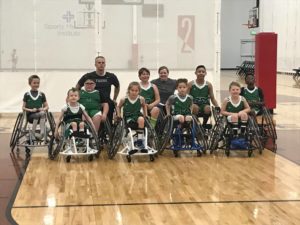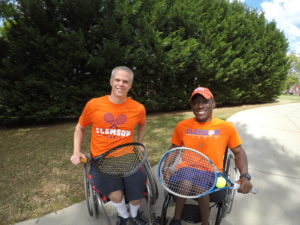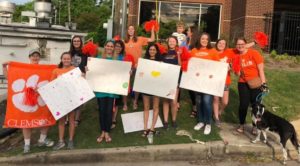By Marissa Kuula, a current Community Recreation and Sport Management focused student within the Parks, Recreation and Tourism Management Department (PRTM)

Going into its fifth year under a grant from the United States Department of Veteran Affairs this past spring, the Clemson University Paralympic Soccer Program team headed by Parks, Recreation and Tourism Management faculty member Dr. Skye Arthur-Banning with assistance from Dr. Barry Garst was gearing up for another year of planning and implementing adaptive soccer camps for injured military veterans and professionals across the country. With plane tickets booked and a total of eight camps already under their belt, the team was prepared for a summer focused on delivering ten additional programs around the country in order to improve the quality of life, well-being and independence of military veterans.
Plans, however, were derailed when COVID-19 hit. With the virus rapidly spreading across the world, quarantine and social distancing guidelines went into effect to protect the population, halting all non-essential travel and upcoming gatherings, including the camps.
In the past, a series of camps were held in different American cities, hosting around fifteen veterans and professionals over the course of three days. Participants took part in both classroom and on-field learning and training sessions for two types of soccer – 7-a-side for athletes with Cerebral Palsy, a traumatic brain injury or stroke, and 5-a-side for athletes with visual impairment. They also earned a Mental Health First Aid and a US Soccer Grassroots Coaching certification over the course of the camp.
In addition to these learning and developmental opportunities, participants also had the opportunity to socialize with staff and other participants through group dinners and a planned group activity, such as adaptive foot golf, attending a professional or semi-professional sporting event, adaptive rowing, adaptive golf and adaptive CrossFit.
After the camps, veterans can use their training to become players in adaptive soccer programs, use achieved certifications to help transition back into their communities and pursue coaching opportunities in existing programs. Using skills and certifications gained at camp, participants can also begin to work with community partners to expand adaptive sport participation in their areas and become more active members of their communities overall. The Mental Health First Aid certification gives participants the skills and ability to identify, understand and respond to signs of mental illness.
While new restrictions meant that the traditional camps could not be held in person, Margaret Domka, a Clemson Ph.D. student who works with Dr. Arthur-Banning to manage the program, says that the veterans’ camps may have been even more important to deliver this year than ever.
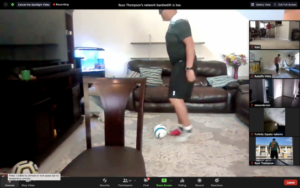
“It has been challenging for many people to find ways to remain physically active and involved in the community this year, and it can be an even greater challenge for veterans with disabilities who may, in normal circumstances, need assistance in finding ways to reintegrate into the community,” said Domka. “Our virtual camps provide an opportunity for veterans to connect with others and become active.”
While COVID-19 has created unexpected challenges, the planning team’s creative thinking and strong work ethic allowed for the virtual style camps to develop and take place. For example, the Mental Health First Aid and US Soccer Grassroots certification portion of the camps took a page out of the book of Zoom classroom sessions Clemson University used to finish its virtual school year after spring break, with certification professionals working their way through instructional PowerPoints and videos. That said, the training sessions and feeling of camaraderie and connectedness that in-person camp offered in the past was harder to facilitate in a virtual setting. In order to combat this obstacle, the undergraduate team that works on these camps came up with ways to engage the participants both physically and socially.
Kirsten Windbiel, a graduate research assistant for the program, said that the team had to be well organized and prepared ahead of time to make the virtual camps work.
“Moving into an online format, our team really needed to be extra organized and creative when it came to executing the camp. Our team met frequently before camp to make sure all the pieces came together in an organized fashion, considering all of the online components, such as who was presenting when, which students were monitoring the Zoom chat boxes, making sure we were communicating effectively to the camp participants and overall, finding a successful way to make the correct adaptations for a variety of disabilities,” Kirsten said.
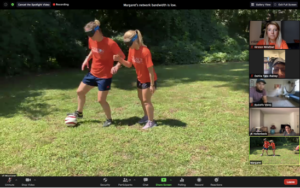
On the more physical side of things, camp attendees participated in chair yoga, seated weight training and adaptive soccer training sessions in which they could either practice drills in their living room or outside. Camp participants were shipped the equipment they needed to participate in these sessions in advance of the camp, including a regular soccer ball and a blind soccer ball (with rattles inside so players can hear the movement of the ball). A group Zoom dinner also helped create an environment conducive for social interactions. Team members took participants’ food orders and coordinated food delivery across three different time zones so that every person was able to eat at the same time while on the Zoom call.
According to Kirsten, the experience taught her that it’s important to stay connected and engaged with one’s community and peers, especially during uncertain times.
“Our community resources session at the end of camp allowed the veterans that participated to talk about resources within their communities and ideas for adaptive sports,” Kirsten said. “In general, the camp also really just allowed the group to come together during a difficult time, learn and have some fun doing something new.”
###
Future virtual camps are currently being planned to continue to benefit the veteran population across the United States. Updates regarding the dates and registration of these camps will be posted on the Clemson Paralympic Soccer website. You can also check out Clemson University Paralympic Soccer (@cuparasoccer) on Instagram, Twitter, and Facebook for updates on the program and other adaptive sport happenings.
